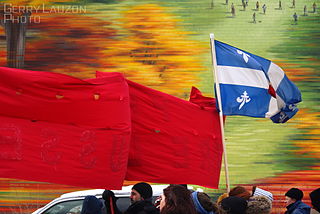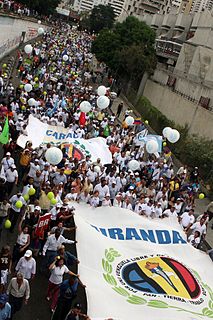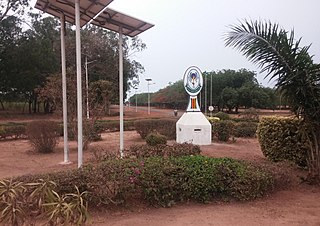 W
WCampus protest or student protest is a form of student activism that takes the form of protest at university campuses. Such protests encompass a wide range of activities that indicate student dissatisfaction with a given political or academics issue and mobilization to communicate this dissatisfaction to the authorities and society in general and hopefully remedy the problem. Protest forms include but are not limited to: sit-ins, occupations of university offices or buildings, strikes etc. More extreme forms include suicide such as the case of Jan Palach's, and Jan Zajíc's protests against the end of the Prague Spring and Kostas Georgakis' protest against the Greek military junta of 1967–1974.
 W
WThe Quebec protests of 2015–2016 is a protest movement that began on March 21, 2015 in Quebec, in the context of what some student associations, left-wing groups, columnists qualify as social strikes, to denounce the budget restriction measures adopted by the Philippe Couillard government. 130,000 students are on strike during the first national demonstration on April 2, 2015, including 55,000 on general strike. Like the 2012 Quebec student protests, the movement was initiated by students and encompassed various issues, particularly that of public finances.
 W
WThe boycott of The Ingraham Angle is an ongoing boycott of companies that advertise their products during the Fox News television show The Ingraham Angle. Marjory Stoneman Douglas High School student David Hogg initiated this boycott after the show's host, Laura Ingraham, ridiculed him amidst conspiracy theories related to the shooting at his school in 2018, in which seventeen students died and where Hogg was a witness and survivor. Ingraham's particular criticism of Hogg was that some universities declined to offer him admission after his college application.
 W
W#FeesMustFall was a student-led protest movement that began in mid-October 2015 in South Africa. The goals of the movement were to stop increases in student fees as well as to increase government funding of universities. The movements were started and led by the SRC leader of the University of Witwatersrand of 2015, Shaeera Kalla. On 2 October Kalla attended her last council meeting as SRC president, she is accompanied by Nompendulo as an observer heading towards being the incoming SRC President of 2016. Protests started at the University of Witwatersrand and spread to the University of Cape Town and Rhodes University before rapidly spreading to other universities across the country.
 W
WThe Ingraham Angle is an American news and opinion-based talk show that premiered on October 30, 2017, on the Fox News channel. The show features Laura Ingraham and guests discussing the day's latest issues, news, as well as controversies.
 W
WThe 2011 Israeli social justice protests, which are also referred to by various other names in the media, were a series of demonstrations in Israel beginning in July 2011 involving hundreds of thousands of protesters from a variety of socio-economic and religious backgrounds opposing the continuing rise in the cost of living and the deterioration of public services such as health and education. A common rallying cry at the demonstrations was the chant; "The people demand social justice!".
 W
WThe Jayatu Sanskritam movement begin in 1947 AD(BS 2004), started by students of the Tin Dhara Pakshala Sanskrit School in Nepal. They demanded democracy, basic welfare, and the inclusion of modern subjects in their curriculum. It was the first student uprising in Nepal's history, and led to the Revolution of 1951 and the fall of the Rana dynasty.
 W
WThe RCTV protests were a series of protests in Venezuela that began in the middle of May 2007. The cause of the protests was the decision by the government to shut down Venezuela's oldest private television network, Radio Caracas Televisión (RCTV), refusing to renew its broadcasting license and instead creating a new public service channel called TVes, which began operations on 28 May, the same day RCTV's license expired. RCTV had Venezuela's largest viewing audience, with 10 million of the country's 26 million people viewing its shows and soap operas.
 W
WMoral and national education (MNE), initially known as Moral and civic education (MCE), was a school curriculum proposed by the Education Bureau of Hong Kong in 2012.
 W
WProtests against President Rodrigo Duterte began on November 18, 2016, following Duterte's support of the burial of the late president Ferdinand Marcos. These series of protests are mostly conducted by progressive groups and other opposing figures mainly due to the ongoing war on drugs, the declaration of martial law in Mindanao, and employment issues such as contractual terms being applied by companies and inflation which occurred due to the passage of the Tax Reform for Acceleration and Inclusion Law. Other causes of the protests include the government's response to the COVID-19 pandemic in the country, the passage of the Anti-Terrorism Act of 2020, and the shutdown and franchise denial of ABS-CBN.
 W
WStudent riots, college riots, or campus riots are riots precipitated by students, generally from a college, university, or other school. Student riots are often an aspect of student protests.
 W
WThe University of Lomé is the largest university in Togo. Located in the city of Lomé, it was founded in 1970 as University of Benin and changed its name to the University of Lomé in 2001.
 W
WThe Velvet Revolution or Gentle Revolution was a non-violent transition of power in what was then Czechoslovakia, occurring from 17 November to 29 December 1989. Popular demonstrations against the one-party government of the Communist Party of Czechoslovakia included students and older dissidents. The result was the end of 41 years of one-party rule in Czechoslovakia, and the subsequent dismantling of the command economy and conversion to a parliamentary republic.